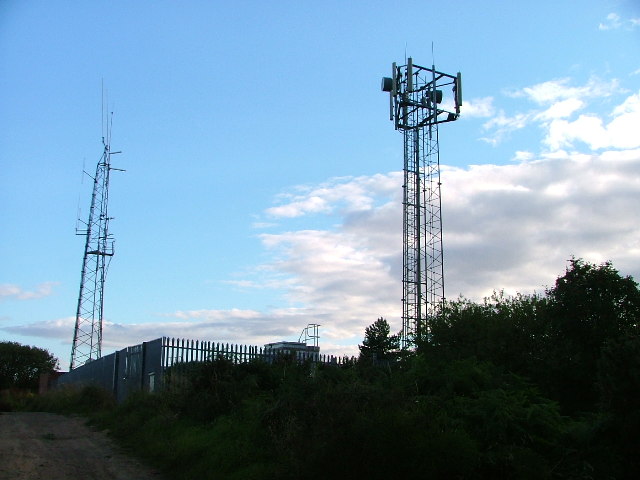
The Government announcement that it has struck a £5billion deal with service providers to improve mobile phone signals in the countryside, will come as welcome news for hundreds of thousands of people living in rural communities.
However, to reach the imposed target of 85 percent of the UK to be covered within three years, it is clear operators will need to significantly increase the number of mobile phone masts they currently operate throughout the countryside.
Whilst this potentially offers a good source of income for land-owners, solicitor Justine Ball from leading commercial law firm SGH Martineau warns there are risks for the unwary: “Before agreeing a deal with an operator, landowners should be aware that any service provider registered with Ofcom as a licenced operator, is granted a unique security of tenure when locating communications masts.
The operator in the agreement is also allowed to let other service providers share the site or equipment, without requiring the landowner’s consent, which can further complicate matters.
“The Electronic Communications Code (contained in Schedule 2 of the Telecommunications Act 1984, as amended by the Communications Act 2003) (the Code) provides unique security of tenure to an operator, if it is registered with Ofcom.
Reform is on the way
“The Electronic Communications Code has been under review for some time and a new draft Code has been included with the Infrastructure Bill, which is currently being considered by the Public Bill Committee in the House of Commons.
“Although the new Code is written in more modern style and language with the intention of clarifying and removing ambiguity, it adheres to the same basic principles as the current Code.
“The Code has always required a complex and rigid process to be followed if a landowner wants to remove or relocate telecommunications equipment. This involves the service of prescribed notices, and in the absence of agreement, a court order will ultimately be required to remove apparatus.
“In this regard, one change being considered is the dual application of security of tenure comprised in the Landlord and Tenant Act 1954 and the Code. Where the parties intended that the primary purpose of the agreement was for the landowner to grant Code rights to the operator, only Code rights will apply, as contained in the new Code.
New rules but the aim is the same
“The new Code will simplify the procedure for landowners to remove telecommunication service providers from their land, hopefully saving landowners significant costs. It also sets out a much clearer process for removing telecommunication equipment and masts from sites where any commercial agreement between the landowner and the service provider has come to an end.
“The system as it exists was designed to ensure service providers would avoid the sudden loss of sites, which could cause holes in their coverage network, but there are currently no time constraints on their exit, which causes uncertainty and delay. The new Code will impose time limits for service providers to comply with if they sought to remain on a site.
“Some of the changes in the new Code have been designed allow operators to upgrade their equipment on sites without the need for any further agreements. It is likely this is in response to the planned expansion of the 4G network as is the provision of new rights for operators to share and consolidate mast sites, reducing the need for multiple mast sites, each operated by a single service provider.
“Landowners should be aware that currently (prior to the draft Code being enacted), they may not be able to immediately obtain vacant possession without engaging in the statutory process as laid down in the Code and the Landlord and Tenant Act 1954, which can take a significant amount of time and costs to resolve.
“If a landowner requires the alteration or relocation of telecommunication equipment (as opposed to vacant possession) to carry out development of a site, the Code currently requires written notices to be served. As with seeking to obtain vacant possession, a landowner cannot require any alteration or relocation of equipment without a court order.
Short term gain versus long term pain
“There is every likelihood that the losses a landowner might incur as a result of being unable to develop a site, or being able to obtain vacant possession, will exceed the income received during the term of an agreement with an operator. It is therefore important that landowners consider carefully whether the short term income they expect to receive from an operator outweighs any long term plans they may have.
“When considering an agreement, landowners should also consider covering in detail concepts such as site and mast sharing provisions, as it is becoming increasingly commonplace for operators to share sites. Often one operator will allow other operators to either install their own equipment in the space subject to an agreement (site sharing), or allow other operators to operate their networks through an operator’s existing apparatus on site (mast sharing).
“Site and mast sharing throw up ambiguity as to whether the alienation provisions of a lease are breached under such an agreement. These agreements also leave open the possibility of having multiple occupiers on site who could each qualify for separate protection under the Code.
“It is therefore important that a comprehensive site and mast sharing clause is included within an agreement, not only to deal with the physical occupation of additional occupiers but also to take into account the more modern concept of other operators sharing the same telecommunications equipment already on site.
And finally...
“Whilst we await the outcome of the Infrastructure Bill and the new Code, it remains clear that as the operators begin to push through the coverage improvements, there will be opportunities for landowners, as sites for new masts are sought. But, as with most opportunities, there are risks and it is important these are carefully considered, with appropriate legal advice taken to ensure the agreement reached takes into account any future plans of landowners.”
